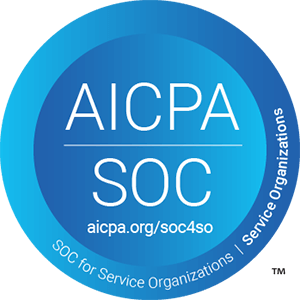Picture this: You’re a dedicated company executive striving for organizational excellence in a competitive business landscape. You’ve assembled a talented team of individuals who possess the skills and drive to propel your company forward. But how do you ensure that each member of your team is consistently performing at their best, maximizing their potential, and contributing to the company’s success?
The answer is–the implementation of effective performance reviews.
In this blog, we’ll unwrap the benefits of regular performance reviews, as we share with you the 10 best outcomes that can dramatically transform your business trajectory.
What Do We Mean by Effective Performance Reviews?
Performance reviews are not just a one-way critique done once a year. It is an engaging dialogue, a two-way street that promotes understanding, growth, and advancement. It is a methodical process where the efficiency and productivity of an employee are assessed with respect to predetermined job functions and goals.
Imagine this as a checkpoint in the journey of professional development, where feedback illuminates the path for further progress. It fuels employee motivation, aligns individual and organizational goals, promotes skill development, and sets the foundation for reward systems.
However, the magic of performance reviews doesn’t stop at improving individual performances — it stretches way beyond. It helps to weave a culture of continuous improvement, stimulate employee engagement, and catalyze innovation, which are vital ingredients for business success.
How Does Effective Performance Review Help?
1. Brings Clarity of Goals and Responsibilities
Effective reviews act as a strategic compass providing clarity on goals and responsibilities. It eliminates ambiguity by clearly defining job expectations and success metrics.
- It sets clear benchmarks, allowing employees to understand what success looks like in their jobs. It eliminates guesswork and ambiguity, offering a clear vision of the tasks at hand.
- It offers employees the opportunity to understand how their work contributes to the broader objectives of the organization through bi-directional dialogue. This big picture helps them align their personal goals and ambitions with the company’s mission, thus promoting unified progress.
- It facilitates the setting of SMART development goals which are usually tied to KPIs. By identifying and communicating these KPIs, employees gain a deeper understanding of their role and the metrics by which their performance will be evaluated.
- It cultivates a sense of ownership and accountability among employees. When they understand their role in the organizational roadmap and the impact of their work, employees are likely to take more responsibility for their performance.
2. Enhances Communication and Continuous Feedback
Effective performance reviews serve as a cornerstone for enhancing communication and establishing a culture of continuous feedback within an organization. They create an open dialogue between employees and their managers, fostering transparency and mutual understanding.
- It enables an ongoing conversation about performance, goals, and professional development strengthening relationships within teams.
- It provides a platform for employees to voice their thoughts, ideas, and concerns, promoting a reciprocal communication process leading to problem-solving discussions, innovative ideas, and improved collaboration.
- Managers highlight areas of improvement and provide guidance on overcoming obstacles during performance reviews. Similarly, employees get a chance to provide upward feedback, offering their perspective on management, team dynamics, and overall work environment.
Read More: 20 Performance Review Questions to Ask for Better Employee Evaluations
3. Empowers Employees to Feel Heard and Valued
Performance reviews not only improve communication but also foster a sense of value and validation among employees. Here’s how they empower employees to feel heard and valued:
- The open dialogue between managers and employees ensures employees feel heard and respected.
- It provides an opportunity to acknowledge and celebrate employee achievements, boosting morale and motivation.
- It makes employee feedback and suggestions valuable, when you give them a voice in decision-making processes.
- Transparency and fairness in performance reviews build trust and a sense of belonging among employees.
- It makes the employees feel empowered when you involve them in goal-setting and decision-making processes, enhancing motivation.
4. Helps Increase Productivity
Effective performance reviews are a crucial tool for boosting productivity. As we know they help improve communication, help align goals which contribute to a more productive workplace.
- It provides an essential forum for managers to articulate clear expectations, enhancing the efficiency of employees by removing ambiguities and facilitating a focused approach to tasks.
- Reviews highlight how individual tasks contribute to the overall company mission. Understanding this not only motivates employees to contribute more effectively to the company’s mission, but it also catalyzes increased effort and productivity.
- Performance reviews help spot strengths and weaknesses. Managers can then give tasks that suit an employee’s strengths and help them improve in areas where they are weaker. This leads to more effective work processes.
- Performance reviews help in the better allocation of resources by spotting skill gaps for targeted training and reveal process inefficiencies for improvements. It highlights workload imbalances for better task distribution, and provides insights for more effective task assignment leading to better resource allocation.
5. Drives Employee Engagement and Reduces Stress
It is important to create a more positive and effective workplace environment to enhance productivity and foster a focused workforce. Regular performance reviews mitigates stress by enhancing communication and fostering a sense of belonging that fuels engagement and deepens connection to work.
- Recognition of employee achievements during these reviews not only boosts morale and job satisfaction but also nurtures engagement, instilling a sense of dedication when hard work is acknowledged.
- It helps set clear expectations and offers consistent feedback, which helps mitigate stress by eliminating the uncertainty that often triggers it.
- It also paves the way for discussions about career growth and learning opportunities, motivating employees and easing the stress associated with job stagnation. This brings us to our next point.
6. Promotes Employee Development
Nurturing the skills, competencies, and growth of employees not only improves their performance but also enhances job satisfaction and loyalty. And performance review is one of the key catalysts in this developmental journey.
- Performance reviews identify employee strengths and weaknesses, enabling managers to create tailored development plans to leverage their strengths.
- It highlights areas for potential training or learning, supporting resource allocation for development. This helps in providing the necessary resources, like training programs or workshops, to facilitate employee development.
- Regular reviews track progress towards goals, maintaining motivation and ensuring growth.
7. Fosters a High-Performance Culture
Fostering a high-performance culture is crucial not only because it leads to improved productivity but also fosters innovation and drives growth. And performance reviews are one of the most effective ways to instill such a culture.
- Performance management sets clear goals and expectations, motivating employees to strive for high performance.
- It recognizes and rewards high performers, setting a standard for others.
- It includes personal development plans, helping employees enhance their skills.
- It promotes accountability, driving a culture of excellence.
- It provides data for informed decisions about promotions, rewards, and other performance-influencing aspects.
8. Helps Predict Future Performance
Predicting future performance is crucial for strategic planning and informed decision-making within an organization. Performance reviews not only reflect an employee’s past and present performance but can also provide valuable indicators of future performance.
- It provides a record of an employee’s past performance. Patterns in these past performances can often indicate future behaviors. If an employee consistently meets or exceeds their targets, it’s likely they will continue to do so.
- It helps identify high-potential employees, preparing them for greater roles and supporting succession planning. The way an employee receives and applies feedback, received during these reviews, indicate their potential for growth and future performance.
- Performance reviews involve setting goals for the future. The nature of these goals, and an employee’s past ability to meet them, can give a sense of their future performance.
- Over time, performance reviews reveal trends which help in improvement in certain areas, or perhaps a decline. These trends can be a reliable indicator of future performance.
9. Helps Create Development Strategies
Developing employees’ skills, capabilities, and competencies is an essential part of an organization’s growth strategy. This allows for a clear roadmap towards professional growth. The regularity of performance reviews offers a means to track and evaluate the progress of the development strategies, enabling necessary adjustments and fine-tuning over time.
It plays an integral role in identifying development needs, setting and aligning goals, spotting training needs, and monitoring the effectiveness of development strategies.
10. Employee Retention
Effective performance reviews stand pivotal to boost employee retention, reflecting on the most valuable asset for an organization– its people.
- It helps recognize and validate employees’ efforts, fostering job satisfaction and a sense of connection to the organization.
- Clear communication during reviews reduces misunderstandings and boosts satisfaction, thereby improving retention.
- Performance reviews also drive employee engagement, contributing to organizational commitment and reduced turnover intentions. Reviews help to identify and address potential concerns early, preventing employee attrition.
How Does a Performance Management System Help in an Effective Performance Review?
A performance management system has become an essential tool for modern businesses, enabling a more streamlined, efficient, and effective approach to performance reviews.
The system revolutionizes the performance review process, aligning it seamlessly with the dynamic needs of your organizations.
- It automates the performance review process, eliminating manual errors, and biases, ensuring consistency.
- It allows for customizable review cycles to suit the unique needs of the organization. This flexibility ensures that performance reviews are relevant and timely.
- The managers can provide real-time, constructive feedback to employees. This instant feedback can increase transparency and foster a culture of continuous improvement.
- It allows managers and employees to set and track performance goals. Monitoring progress towards these goals can increase motivation and engagement.
- It offers robust analytics and reporting features, providing valuable insights into employee performance and helping to identify trends and patterns.
- It integrates with other HR tools and other software like Slack, ensuring a smooth and seamless performance review process. In fact, there are tools like Peoplebox which allows you to conduct the entire performance review process right from Slack.
- It comes with features to run engagement surveys, helping to understand the pulse of employee satisfaction and engagement.
Conclusion
Performance review is not merely an annual administrative task but a strategic instrument for enhancing employee engagement, productivity, and retention, while also fostering a high-performance culture.
Performance management systems like Peoplebox can amplify this effectiveness, transforming the review process into a more insightful, consistent, and meaningful experience. With features designed to automate, customize, and integrate the performance review process, along with real-time feedback and robust analytics capabilities, Peoplebox sets itself apart as a comprehensive solution. It’s more than just a tool – it’s a strategy for success.
The outcomes of effective performance reviews, further enhanced by Peoplebox, resonate across the entire organization, leading to a happier, more motivated workforce, and a business that is well-equipped for growth and success.
The key lies in embracing performance reviews as an ongoing dialogue rather than a once-a-year event.
With Peoplebox, you are not just reviewing performance, you are engaging your team, fostering growth, and setting the stage for continuous improvement and success. Explore Peoplebox today and take the first step towards unlocking the true potential of performance reviews in your organization.
Book a demo today!








